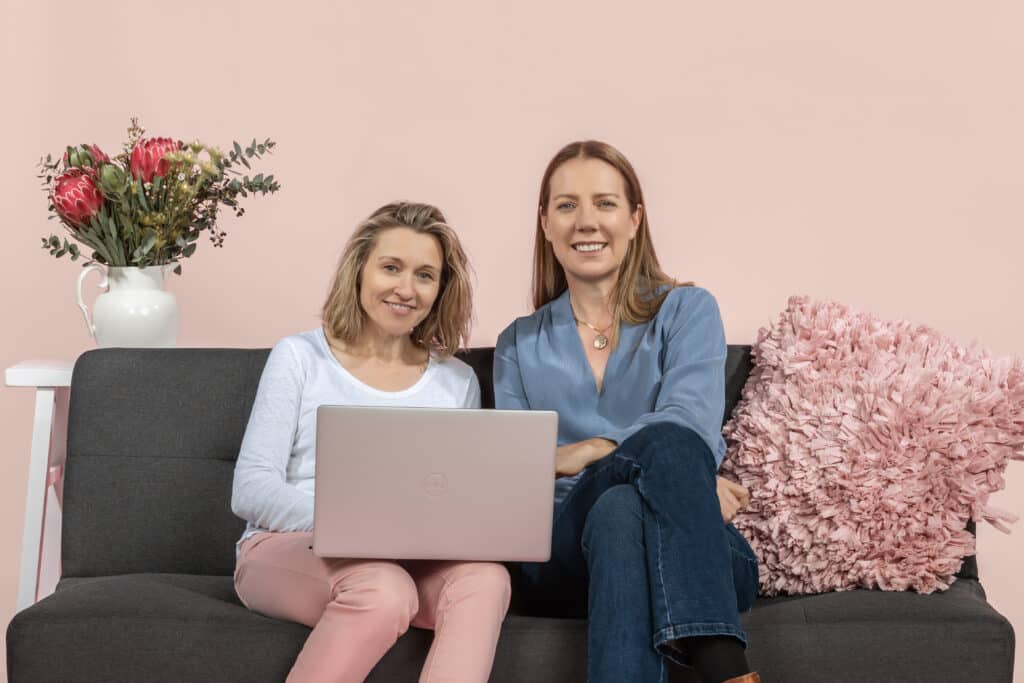Co-founder and CEO of Noisy Guts, Dr Josephine Muir is on a mission to improve the lives of people living with gut health issues, including Irritable Bowel Syndrome (IBS), one of the world’s most common gut conditions.
Back in 2017, Dr Muir and her colleague Dr Mary Webberley were conducting research at the Marshall Centre for Infectious Diseases at the University of Western Australia. Working with Professor Barry Marshall, they were interested in developing a non-invasive and accurate diagnostic test for IBS, a disorder that affects a huge community of people, and more women than men.
The pair also went on to develop Noisy Guts’ Superflora shakes, which are research-backed low-FODMAP and gluten-free products, with a custom fibre-blend formulated specially to suit people with IBS.
“I’m someone who does suffer from irritable bowel syndrome, and Mary and I were really interested in helping people with IBS and trying to improve their quality of life,” Dr Muir told Women’s Agenda recently.
But taking the leap from research in a tertiary institution to becoming entrepreneurs, was a giant leap for Dr Muir and her co-founder Dr Webberley.
As first time founders, Dr Muir said she and her co-founder Dr Mary Webberley did not have access to funds and well-connected networks, and didn’t have a clear-cut road to the world of entrepreneurship.
That’s where participating in programs like the CSIRO’s ON Innovation Program and CSIRO Kick-Start programs really helped the researchers-turned-entrepreneurs to find their feet.
“Coming from a tertiary institution, we really didn’t have great links into entrepreneurship or research translation,” Dr Muir shared with Women’s Agenda recently.

In 2020, they took part in the CSIRO Kick-Start program, which supported Dr Muir and Dr Webberley with access to technical expertise and matched-funding to propel forward their vision for Noisy Guts.
“At the time, we were testing algorithms, and one of the things that happened during COVID was that not only was it very hard to employ people with machine learning AI skills, but the Western Australian borders were closed, so it was really extra difficult to get the expertise we needed,” Dr Muir explained.
“So Kick-Start was fabulous for us – to be able to meet other researchers who had the expertise we were finding very difficult to access in Western Australia, particularly when we were competing with Google and some of these big firms that were very quick to snap up people with skills. And it also gave us independent validation and verification.”
Another benefit of being part of the CSIRO Kick-Start program was building a network of other researchers and entrepreneurs, and gaining access to investors. As female founders, Dr Muir and Dr Webberley found this hugely beneficial.
“When Mary and I were doing our seed round, we were looking for $2.5 million,” Dr Muir says.
“When we’d reach out to venture capitalists or angel investors, they would say to us, ‘Why don’t you do a family and friends round first’…as if we had family and friends with $2.5 million in spare cash, or that we had that kind of network or alumni from school, this ‘old boys network’ that we could easily tap into.”
“As first time female founders, we did not have those networks or those connections, and we didn’t know where to look. But through CSIRO, we certainly had many conversations with venture capitalists and they would arrange introductions for us.”
Dr Muir also says that being able to speak to other research teams through the CSIRO Kick-Start program was helpful, to hear their experiences and strategies.
Men continue to dominate venture capital
In the process of raising funds for Noisy Guts, Dr Muir and Dr Webberley often found themselves pitching to male investors who had little to no knowledge of IBS as a health issue.
“We were very, very rarely pitching to females,” Dr Muir shares.
“Of our 13 investors only one was female. So we were often pitching to middle aged blokes who typically don’t have IBS, or they think IBS is just a women’s problem, and not really terribly interested in talking about bowels and bowel health.”
“So you know, we had to find ways of making our story and the problems that our potential customers were facing relevant to male investors.”
Having the support and resources of the CSIRO was essential during this time for Noisy Guts, allowing Dr Muir and Dr Webberley to excel in their transition from research to business.
“Mary and I were on a cliff, holding hands, going, ‘you want to jump? Why not? Let’s give it a go’,” Dr Muir says. “But I think there would be many people in our position who would not take that leap of faith.”
The CSIRO Kick-Start program is open for applications from Australian start-ups and small businesses less than three years old or with a turnover of less than $10 million. If your business idea needs a R&D boost, find out more information here.

